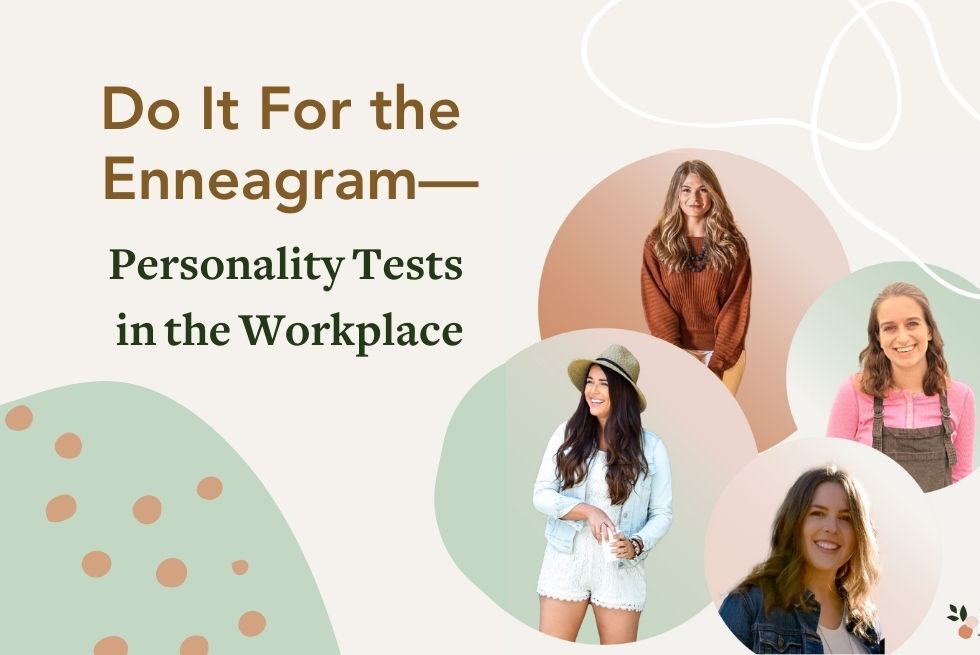
I’m a five. No, I’m not fishing for compliments, I genuinely think I’m a five… on the enneagram scale.
Perhaps you’ve heard it mentioned in passing by your podcast-loving pals or maybe even dropped by your therapist as just one of many ways to better grasp your place in the world. The enneagram framework is a personality test that sorts people into nine main categories and additional subcategories (called wings).
The Enneagram Institute explains that the idea originates from “a modern synthesis of a number of ancient wisdom traditions” including “mystical Judaism, Christianity, Islam, Taoism, Buddhism, and ancient Greek philosophy,” but all this wisdom was eventually curated by Brazilian scholar and philosopher Oscar Ichazo. Even the symbol of the enneagram, a sort of lattice within a circle, can be traced back to Pythagoras, adding to the seemingly spiritual, all-knowing aura surrounding this test.
So how do we apply this lofty, venerable, esoteric perspective to our modern lives? Why, with free online quizzes and instagram memes, of course!
According to google, “enneagram” was searched for relatively consistently until around 2017, when the term began to pop up more frequently. It hit its peak in August of 2019, with most of the searches taking place from Tennessee and many also including “type 7,” which checks out, since type seven is synonymous with “the enthusiast.”
It’s worth noting that even with ancient roots that blend academia and spirituality, the enneagram does have nuances. Any test taken by the subject of study themselves can be impacted by the observer effect. We might be swayed to answer questions the way we want to be perceived rather than in the way that we actually are; or we could take the test on an unusually bad or good day, swaying the answers one way or another.
Despite the drawbacks, using, teaching, and understanding enneagram has become an industry in and of itself. Casual enthusiasts abound, resulting in the concepts being extremely accessible, but also extremely subjective. Influencers like @enneagramandcoffee, @christinaswilcox, and @enneagramashton have amassed thousands of followers by sharing their unique take on every type with eye-catching visuals and relatable captions.
Whether it’s enneagram’s accurate encapsulation of so many different personality combinations or simply people’s hope that the test achieves as much, either one could be the answer to why the test is so powerful for so many. Furthermore, the plentiful perspectives on enneagram results available for free online help ensure that all can access the theory in a way that appeals most to them.
Following the thinking behind enneagram, if everyone, everywhere took the test, we could improve worldwide communication, resolve conflict, and achieve true self reflection – or at least make our workplaces a little more productive.
Whether it’s with the help of a coach or just a discussion in a team meeting, the enneagram, like any personality test, might help employees closely analyze their work style and how that work style affects their interactions with others.
In a case study conducted by The Enneagram in Business, one company said that by using the enneagram, “we are changing the culture by changing the social system in our division to one of self-development, self-responsibility and, at the same time, highlighting the importance of interpersonal communication and respect and emphasizing the need for leadership excellence.”
The Juniperus team recently took the test. Content Strategist Val recently learned that she is a type 7 through and through.. ”I felt like they were written by my best friend or partner because they were SO on the nose,” she says. “I like (enneagram) because it acknowledges that we are all complex, unique people – and knowing one another’s strengths, weaknesses, needs, etc. can be a gamechanger for a positive working environment.”
As a 5 and “investigator” type, I, for one, am curious as to how our results interact with each other. Will we meet our deadlines more efficiently? Will our Google Docs become more organized? Will our happy hours become more frequent? Time – and our next team meeting – will tell.
This post is a follow-up to our deep dive into Love Languages and how they might be expressed in the workplace, which can be read here.

Julia Regeski
Social Impact Strategist
Julia Regeski is a content creator who believes that everyone's story deserves to be told in a way that's intentional, compelling, and authentic. Her work experience has been focused on advancing meaningful social causes, and includes advocating on behalf of Georgia's environmental resources and bringing together nonprofits in the wake of natural disasters. When she's not using her communications skills to try to make the world a better place, you'll likely find her reading, practicing yoga, or adventuring in the great outdoors.




